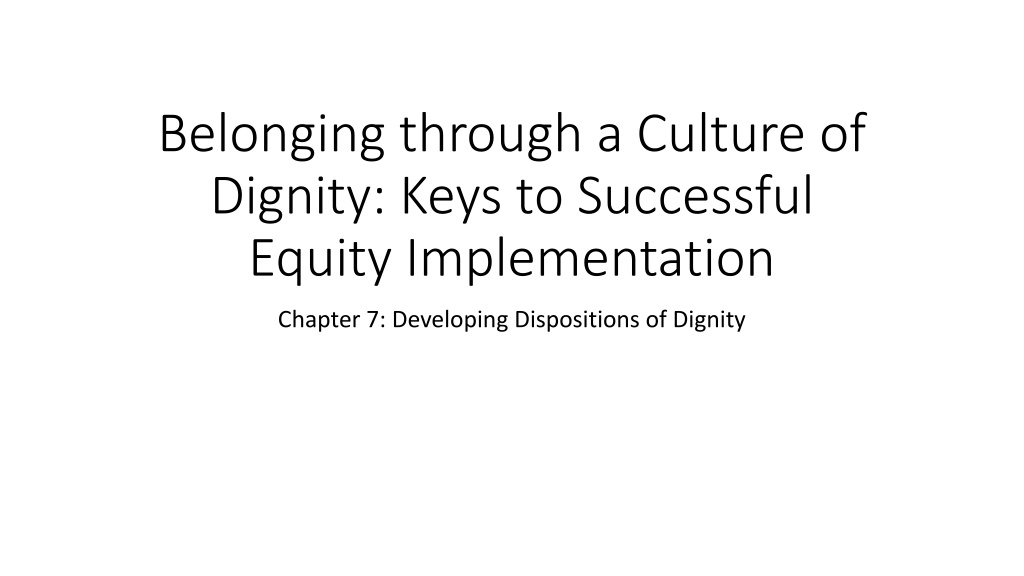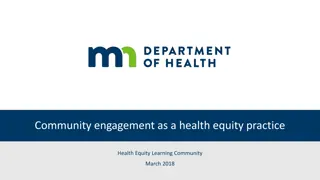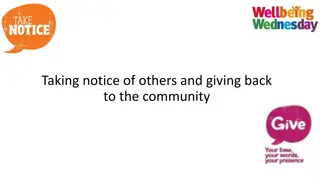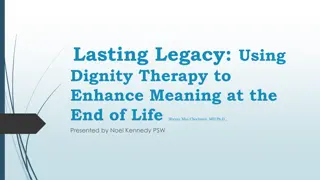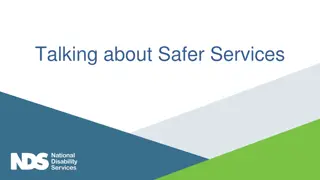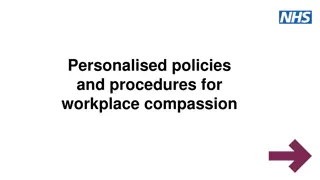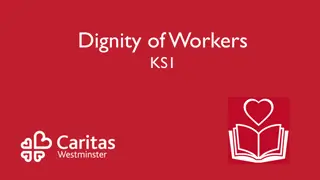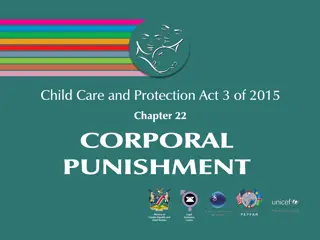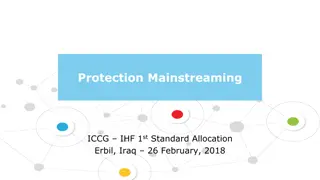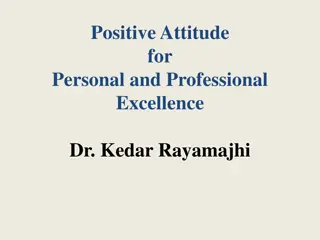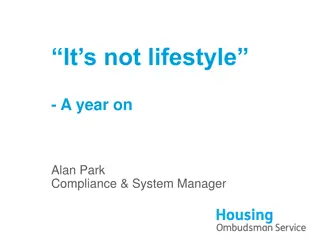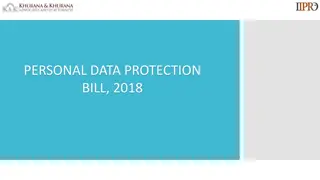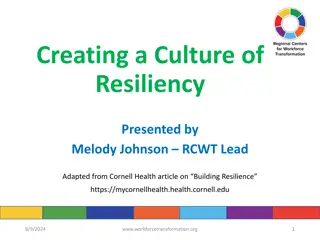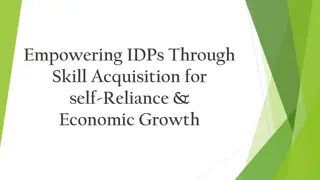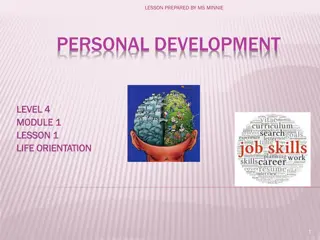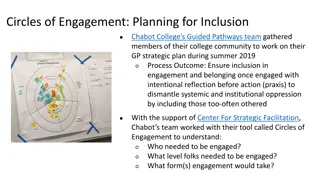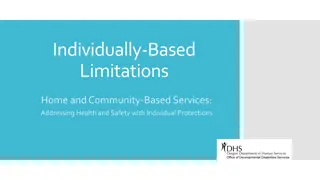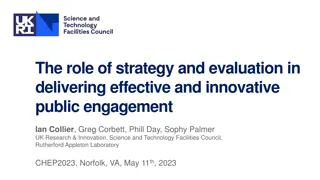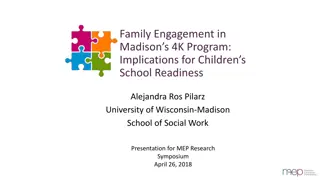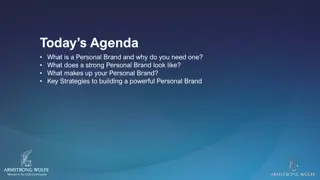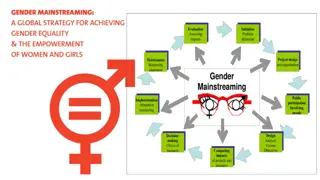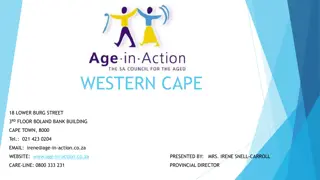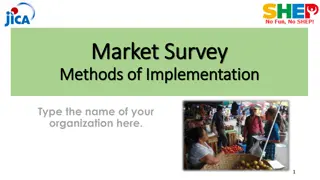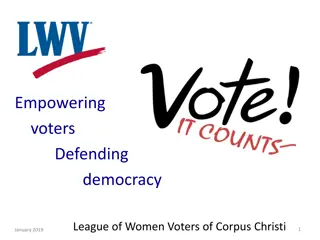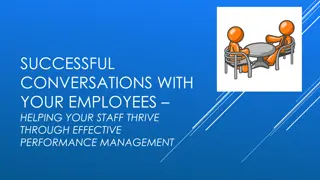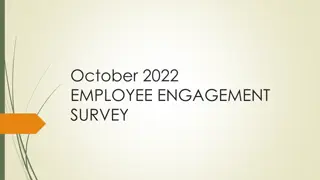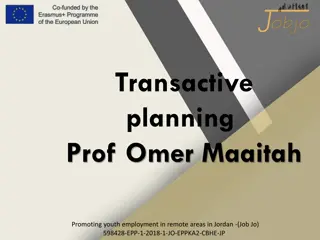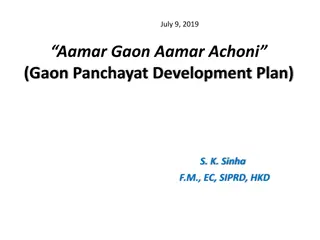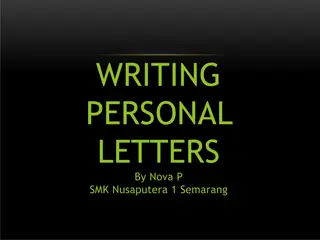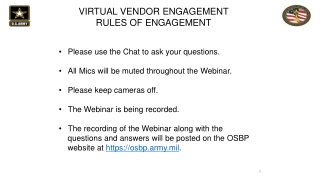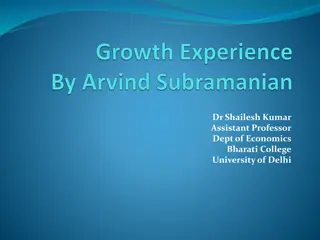Cultivating Dignity: Empowering Personal Growth through Authentic Engagement
Develop your personal dispositions of empathy, patience, openness, and listening to cultivate dignity and belonging. Embrace the discomfort of growth, co-create brave spaces, and embark on the dignity journey to honor yourself and others.
Download Presentation

Please find below an Image/Link to download the presentation.
The content on the website is provided AS IS for your information and personal use only. It may not be sold, licensed, or shared on other websites without obtaining consent from the author. Download presentation by click this link. If you encounter any issues during the download, it is possible that the publisher has removed the file from their server.
E N D
Presentation Transcript
Belonging through a Culture of Dignity: Keys to Successful Equity Implementation Chapter 7: Developing Dispositions of Dignity
Check In Question Pick one of the following core dispositions that represents the biggest opportunity for your own personal growth: Empathy Patience Openness Listening Which disposition did you choose and why?
The Courage to Be Uncomfortable It takes courage to develop the personal dispositions that honor dignity: the courage to confront, challenge, and change ourselves. The process of change should involve disequilibrium, discomfort, and struggle, followed by growth. Nothing extraordinary happens while we remain in our comfort zone!
Co-create Brave Space Brave Space is an environment within which we acknowledge the unavoidable risk, struggle, and discomfort that accompanies authentic engagement with the concepts of dignity and belonging Requires us to confront our participation in systems of othering and humiliation Builds on the idea of safe space but does not promote the illusion of a risk-free environment Rejects comfort and safety as defining elements Elevates the notion of courage
Brave Space Conditions and Guidelines Brave Space Condition Sample Brave Space Guidelines Empathy Try on new perspectives. Stories shared here stay here. Patience Slow down to prepare to go far. Openness Take some risks and practice vulnerability. Keep an open mind. Listening Listen to understand not to respond.
The Dignity Journey Starts Within We can t honor the dignity of others until we learn to honor the dignity in ourselves The extreme fragility of the human ego leads people to question whether or not they are enough and most importantly, whether they are worthy to accord themselves dignity When we can t see dignity in ourselves, we fear to see it in others Primitive fear gives rise to envy; We feel we must defend ourselves We engage in actions that seek to strip dignity from others We compare ourselves to others, magnify their flaws = false dignity
False Dignity Inflated sense of value Artificial substitute for self-worth only exists relative to others faults and lesser status or identity Simplest forms: petty gossip, bullying to make oneself feel superior At its worst: the processes and conditions that cultivate group-based marginality and inequality throughout our world Racism Sexism Homophobia Anti-Semitism Islamophobia
We dont have time to focus on ourselves and personal growth .there s work to do We can t give what we don t have This truth has been shared for thousands of years: Namaste/Hindu Greeting the divine in me bows to the divine in you Christianity love thy neighbor as thyself Islamic hadith Take advantage of five before five: Your youth before your old age Your health before your illness Your riches before your poverty Your free time before your work Your life before your death Mahatma Gandhi Be the change you wish to see in the world
Dignity Violations Also Start From Within Many of us can be insecure about showing up in professional and social settings as our authentic selves Will we be valuable enough to others? If we perceive we are inadequate, we can try to be someone we are not Violates our own dignity and the dignity of others in the process Violating our own dignity prevents us from recognizing dignity in others I can t even see myself, how do you expect me to see you?
Cultivating Worthiness Dignity is innate but difficult for us to see in ourselves Dignity Distorters get in the way by distorting our self image Apathy Judgement Intolerance Denial To engage in life with a sense of worthiness, we must let go of those distorters and embrace Dispositions of Dignity Empathy Patience Openness Listening
Correcting Dignity Distorters and Nurturing Dignity Dispositions To Correct This Distorter: Let Go Of Embrace To Nurture Dignity Disposition: APATHY What you are supposed to do What makes you come alive EMPATHY Rationalizing in your head Listening to your heart Numbness to pain Self-determination Thinking you are alone Feeling connected Blaming Others Owning feelings Busy-ness Reflection Mindlessness Mindfulness Productivity as self-worth Play as self-care
Correcting Dignity Distorters and Nurturing Dignity Dispositions To Correct This Distorter: Let Go Of Embrace To Nurture Dignity Disposition: JUDGMENT The need to control Trust OPENNESS Perfectionism Self-compassion What people think Authenticity Comparison Creativity Guilt and shame Forgiveness Fear of the unknown Adventure Being cool, watching from the sidelines Singing, laughing, and dancing like nobody s watching Feedback triggers Feedback is a gift
Correcting Dignity Distorters and Nurturing Dignity Dispositions To Correct This Distorter: Let Go Of Embrace To Nurture Dignity Disposition: INTOLERANCE The need for immediacy The beauty of the journey PATIENCE Need for certainty Faith Anxiety as a normalized lifestyle Stillness and calmness Scarcity mindset Gratitude Attitude Productivity as self-worth Rest and relaxation as self-care
Correcting Dignity Distorters and Nurturing Dignity Dispositions To Correct This Distorter: Let Go Of Embrace To Nurture Dignity Disposition: DENIAL Self-doubt Self-affirmations LISTENING Past regrets Creating future Noise Silent reflection Distractions Focus Needing to be understood Seeking to understand The need to be right Self-validation The need to be noticed Self-appreciation
Triggers That Close Us Off to Feedback Truth Triggers Feedback that we rationalize as uninformed, ill- informed, under-informed, or simply not true Relationship Triggers Feedback that we discount or reject because of the giver s character, competence, or credibility, as well as our connection with them and perceptions of their intentions Identity Triggers Feedback that we reject because it conflicts with our sense of self and identity (the story we tell ourselves about who we are)
